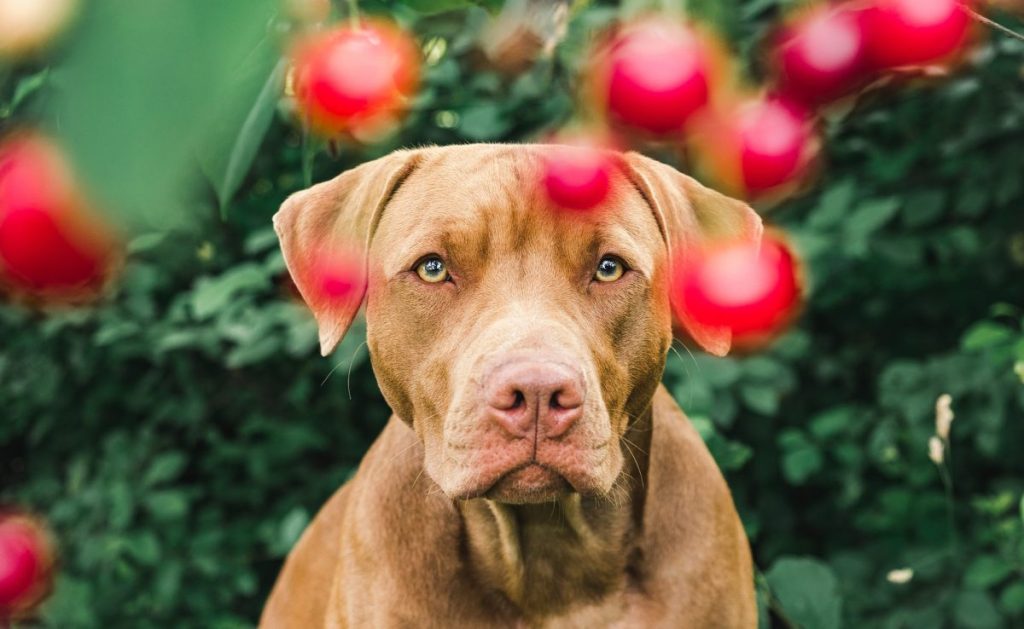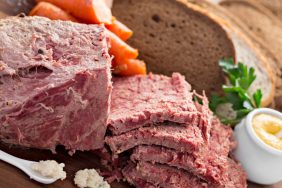If you’ve ever wondered, “Can dogs eat cherries?” you may have come across some conflicting information. The most simple answer is cherries are not safe for dogs and should be avoided. While the flesh of cherries contains some beneficial nutrients, they can do much more harm than good and usually aren’t worth the risks. If you’re looking for a snack to share, plenty of human foods are good for dogs and make for better choices than cherries.
As always, you should ask your vet before sharing human foods with your dog. Here’s what you should know when it comes to dogs and cherries.
Why are cherries bad for dogs?
The pits, stems, and leaves of cherries all contain cyanide, which is toxic and can cause poisoning in dogs if consumed in large quantities. Although the amount of cyanide in one or two cherries probably isn’t enough to do serious damage, there’s no need to risk poisoning when there are plenty of alternatives to cherries that can provide the same health benefits your dog might get from them.
Cherry pits are also a problem for dogs, as they can cause intestinal obstruction. This is the most common problem dogs have when eating cherries, and it’s a serious issue that can lead to some nasty complications. Even if the pit is not eaten, cherry fruit can lead to gastrointestinal upset in dogs.
Are maraschino cherries safe for dogs?
Maraschino cherries should not be given to dogs due to their high sugar content. Often found in desserts and cocktails, maraschino cherries often contain added sugars and artificial coloring. Although they typically do not have the cyanide-containing pits or stems found in fresh cherries, they can still cause gastrointestinal upset in dogs. Additionally, too much sugar can lead to diabetes or obesity over time.
Cherries that have been pitted and had their stems removed are generally safe for dogs in small amounts. Furthermore, they offer some beneficial nutrients, including vitamins A and C, fiber, antioxidants, and melatonin. However, there are plenty of other fruits like blueberries or carrots that provide similar benefits without the risk or hassle of removing pits.
Similarly, it’s also best to avoid giving your dog any cherry-flavored human foods, as these often contain artificial flavors, dyes, chemicals, and added sugars. Avoid giving your dog naturally flavored cherry products as these can still be high in sugar content, which can lead to stomach upset, vomiting, or diarrhea.
What should you do if your dog eats cherries?
While one or two cherries shouldn’t cause too much damage, you should still keep an eye out for signs of cyanide poisoning in your dog. The risk for poisoning is higher the more cherries your dog eats.
Symptoms of cyanide poisoning in dogs include:
- Difficulty breathing
- Bright red gums
- Dilated pupils
- In serious cases, dogs can go into shock
Dogs may also suffer from gastrointestinal discomfort, even if they aren’t necessarily poisoned. If you see any of these symptoms, contact your veterinarian right away. The greater concern when your dog only eats one or two cherries is the potential intestinal obstruction from the cherry pits. Symptoms of gastrointestinal blockage include constipation, decreased appetite, and vomiting.
You should keep an eye out for these symptoms for at least 24 hours after your dog has eaten cherries. If you do spot the signs of a gastrointestinal blockage, get to the vet as soon as possible.









